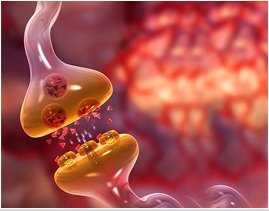
Neurodegenerative Disorders
Neurodegenerative Conditions
Neurodegenerative diseases are hereditary and sporadic conditions, characterized by progressive nervous system dysfunction. More than 600 disorders afflict the nervous system. These disorders are often associated with degeneration of the affected neurons of the nervous system.
Examples: Alzheimer’s Disease and other Dementia of varied etiology, Motor-neuron Disorders, Degenerative Nerve Diseases, Axon Disorder, Genetic Brain Disorders, Stroke, Parkinson’s Disease, Multiple Sclerosis, Progressive Cerebral Atrophy, Progressive Neuromuscular Atrophy, Amyotrophic Lateral Sclerosis (ALS or Lou Gehrig’s Disease), Huntington’s Disease, Prion Diseases, and others.
At AyurVAID Kalmatia, we provide a good holistic care and treatment through Ayurvedic formulations and their usages.
In Ayurveda, the digestive process is considered central to the development of good quality of tejas (intelligence), Ojas (vitality) and Prana (life-force). The digestive process is a broad term that includes our gross digestion of food, digestion of elements (sugar, amino acids, fats), cellular metabolism, as well as digestion of sensory inputs, thoughts and ideas.
Without proper elimination, the body’s blood, lymph, cerebro spinal fluid and subtle channels within various organs all become susceptible to accumulation of waste. According to Ayurveda, accumulation and blockage is caused by “Ama” – a form of intermediate waste product. This intermediate waste product or “Ama” occurs due to incomplete processing of waste resulting from weak metabolic function – in turn, causing accumulation and blockage of the route of elimination.
Thus, regular daily and seasonal detoxification are recommended as part of cleansing. Additionally, Ayurvedic Panchkarma procedures are designed to stimulate cellular cleansing for the diseased and healthy individuals.
Parkinsonism – AyurVAID Case Study
A 67 years old female patient came with presenting complaints of
1. tremors in the hands (involuntary movements of fingers and thumb)since 3.5 years.
2. pulling pain in to the both leg muscles starting from soles up to calf region.
3. low energy levels
4. less concentration and slow initiation in activities
5. Significant loss of weight.
Integrated Summary
| Allopathy | Ayurveda |
|---|---|
| K/C/O: Hypertension | Prakriti: KaphaPitta. |
| Past Medical history: Cervical spondylosis, on tranquilizer for the disturbed sleep | Dosha Sammurchhana: Vata |
| Condition at the time of admission GC: Stable, Afebrile. |
Dushya-Sammurchhana Rasavaha, Raktavaha, Mamsavaha, Asthivaha & Majjavaha srotasas. |
| General Findings: Weight: 56 KG. Blood Pressure: 110/70 mm of Hg. Pulse: 68 beats /min |
Koshta, – Madhyam |
| Clinical Examination: PA:Soft, non-tender, No Organomegaly CVS: S1, S2 heard RS: NVBS |
Rogi Bala Madhyam |
| CNS examination Memory was found affected | Roga Bala Madhyam. |
| Sleep: Disturbed | Agni Bala- Manda |
| Family history myeloma cancer- mother and father was hypertensive. | Mala (bowel)– Ksheen |
| Lab Investigations:
All the blood results were grossly normal. |
Sara- Madhyam Samhanana-Madhyam Pramana- Madhyam Satva- Madhyam Satmya- Snigdha |
| MRI of Lumbo – Sacral spine region – A. Mild posterior bulge on L2 – L3 disc indenting the dural sac with posterior osteophytes. B. Mild posterior bulge on L4 – L5 and L5 – S1 disc compressing the anterior epidural fat, indenting the dural sac. C. Cervical and lumbar spondylosis. |
Ahara Shakti- Avara Jaran Shakti- Madhyam Vyayam Shakti- Avara Vaya- Jeerna |
| Medications
1. Pramipex, Restyl (6.5 mg), |
Chikitsa Done: Duration- 21 days, in-patient treatment 1. Ksheerabala and Narayana Tailam as Sarvanga Abhyanga for 7 days. 2. Anutaila as Pratimarshanasya (2 drops) 3. Sirodhara was started and continued for 7 days. 4. Swedan – Pindaswedan with Patra potali (Erandapatra & Arka patra) for 7 days. 5. Nasya Kriya as principal treatment, twice a day with Anutailam for 7 days |
| – | Internal medication: 1. Ashtavargam Kashayam 15 ml with 45 ml water on empty stomach (BDS) 2. Ksheerabala Thailam (101 aavarti) – 10 drops (BDS). 3. Ashwagandharishtam 3 tsf with water TDS 4. Vidaryadi Ghritha 1 tsp (BDS) after meal. 5. ManasamithraVatakam 2 tabs once at bed time with milk |
Outcome
| Symptoms | Before treatment | After treatment | Follow up @ 6 months |
|---|---|---|---|
| Pulling pain in legs(VAS) | 10 | 5 | 0 |
| Tremors(VAS) | 10 | 0 | 0 |
| Weight (kg) | 50 | 51 | 60.6 |
| BMI | 18 | 19 | 22 |
| Quality of Sleep as measured on Parkinson’s disease Sleep Scale | 102(Poor) | 120(Significantly improved) | 150(Very Good) |
| Adverse drug reactions of Allopathy medicines (Anorexia, weight loss, nausea, constipation, dry mouth, loss of mental alertness, memory loss) | Present | Absent | Absent |
| Gait Mobility score : | 12 | 18 | 18 |
| Bed Mobility score :(Lindop Parkinson’s Assessment Scale) | 12 | 8 | 8 |
Conclusion
1. There was significant improvement in the presenting complaints of the patient like pain, tremors.
2. And the overall well-being and quality of life which is usually affected severely in the Parkinson’s patients.
3. Significant weight gain which brought a underweight BMI 18 to normal BMI range of 22.
4. Adverse effects of conventional medicines brought down significantly and completely on Ayurveda medicines after a period of 8 months.
5. Sustained wellbeing recorded upon review after 1 year.
For Customized Packages, email us at: kalmatia@ayurvaid.com
Testimonials
Disclaimer: * Outcomes may vary from person to person


